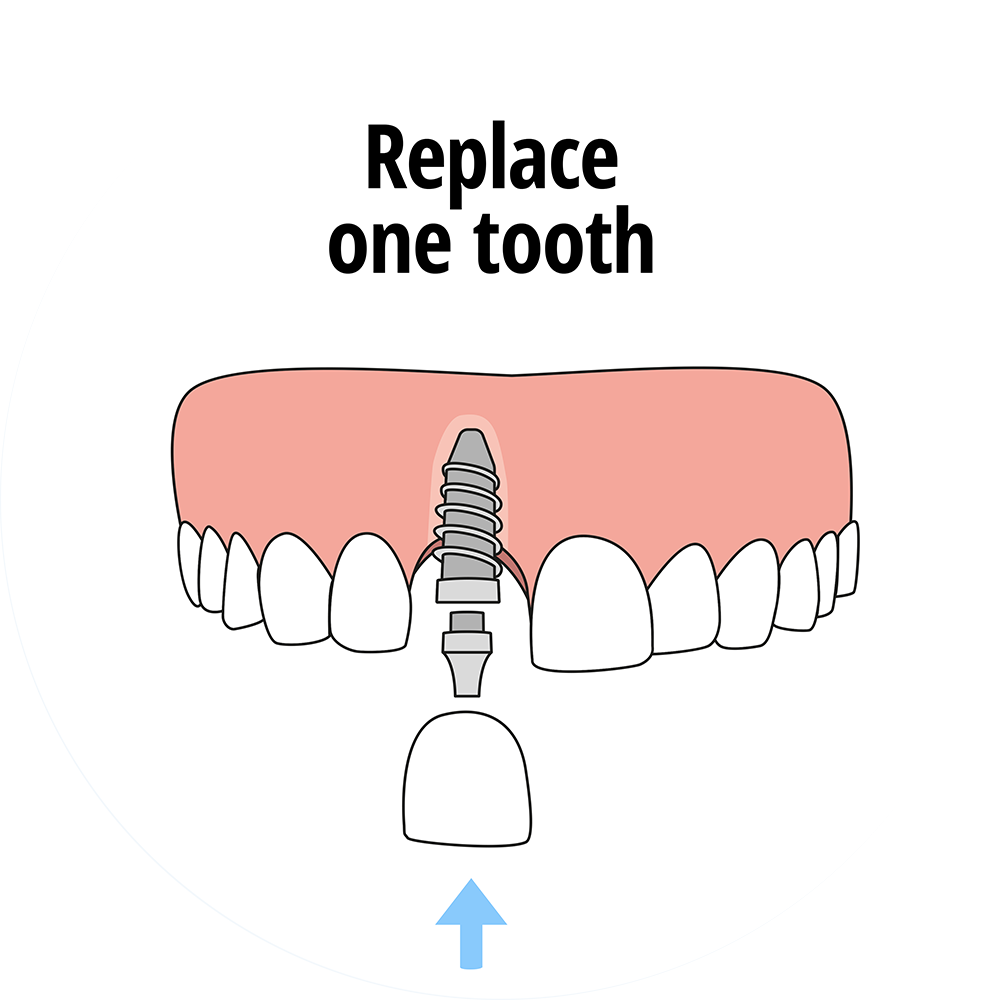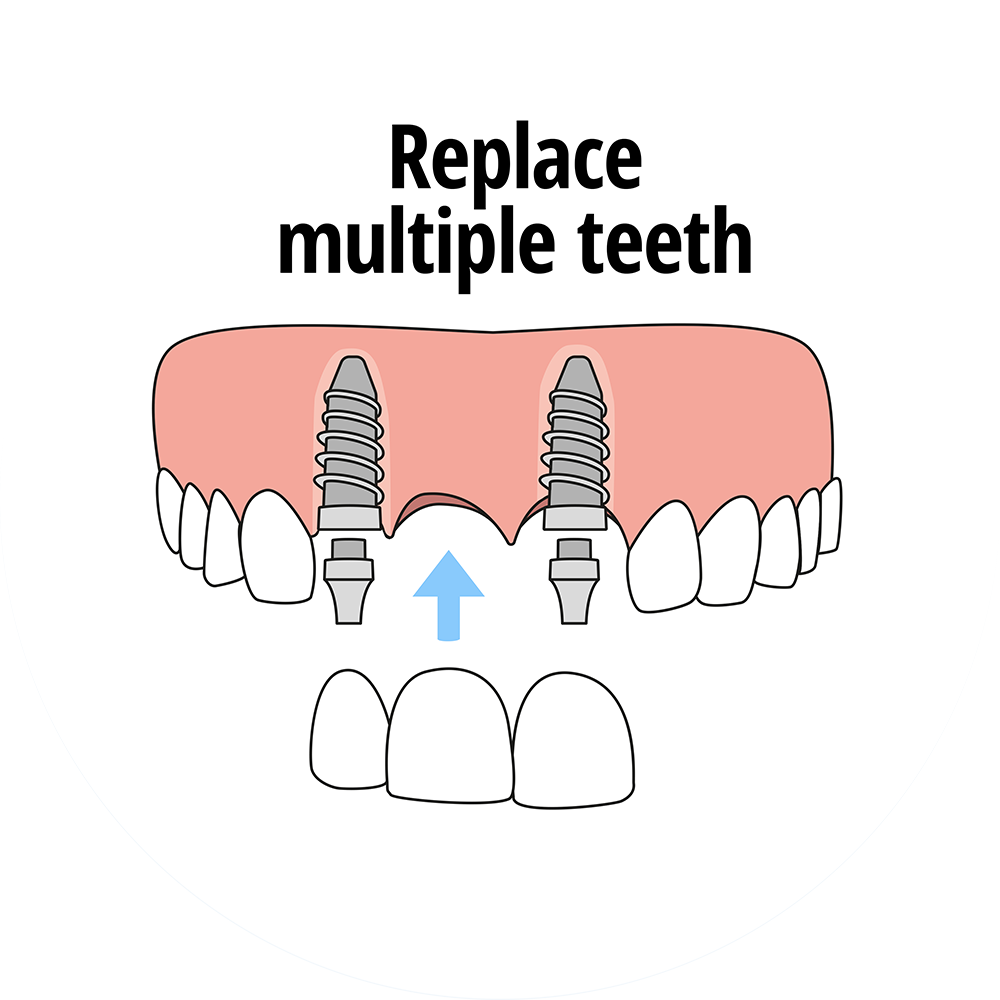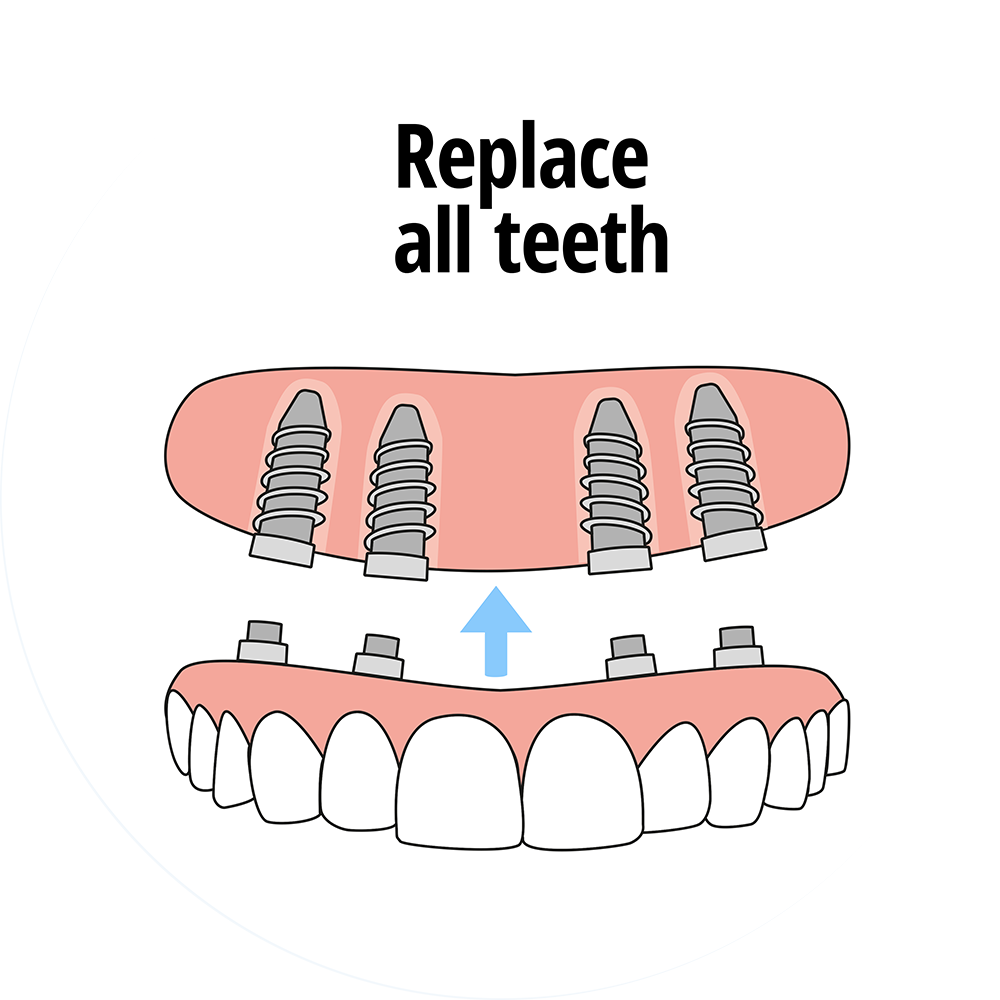Advanced Smile Treatment
Why Choose Dental Implants?
Our expert dental implants will make you smile again. Receive the highest quality implants - now at special savings for new patients
you're an excellent candidate for a dental implant If:
- You're in good overall health, both physically and orally.
- Your jaw has sufficient bone to support the implant.
- Your gum tissues are healthy and free of periodontal disease.
Dental implants are closely connected to the soft tissues (gums) and underlying hard tissues (bone) in the mouth. Dr. G. Allen Herrera is a Board Certified Implantologist (Implant Specialist). What sets Dr. Herrera apart from other dentists who advertise implants is that my training involves extractions and bone grafting (similar to oral surgeons), gum grafting (similar to periodontists) and restoring implants (similar to prosthodontists and general dentists). Dr. Herrera will ensure that your dental implant solution closely resembles the look and feel of your natural teeth.

Single Tooth Replacement
When it comes to replacing a single tooth, a dental implant offers numerous advantages over a bridge. Not only does it closely resemble and function like a natural tooth, but it also preserves the health of neighboring teeth. In contrast, a tooth-supported fixed bridge requires adjacent teeth to be ground down in order to support the cemented bridge.
One key benefit of a dental implant is its ability to replace the tooth root, which helps maintain the integrity of the underlying bone. In comparison, a bridge may lead to bone resorption or deterioration around the missing tooth area. Dental implants integrate with the jawbone, promoting its health and strength.
In terms of aesthetics and maintenance, a single implant tends to be more favorable in the long run. Gums can recede around a bridge, exposing the metal base or collar and creating a visible defect. Additionally, bone loss beneath the bridge can negatively impact the appearance of the smile. Moreover, the cement used to hold the bridge in place can deteriorate, allowing bacteria to cause decay in the supporting teeth.
Overall, a dental implant offers superior benefits in terms of functionality, preservation of oral health, and long-term esthetics compared to a bridge.

Multiple Tooth Implants
Multiple tooth implants offer several advantages compared to fixed bridges and removable partial dentures. Besides providing a natural appearance and functionality, they replace teeth without relying on neighboring natural teeth for support. In contrast, other treatments for multiple tooth loss, such as fixed bridges or removable partial dentures, depend on adjacent teeth for stability.
Another significant benefit is that multiple tooth implants eliminate the need for time-consuming maintenance associated with removable partial dentures. Unlike dentures, which require removal, cleaning after meals, and overnight soaking, implants only require regular brushing and flossing, just like natural teeth.
Moreover, multiple tooth implants help preserve your bone health as they integrate with your jawbone. This integration not only maintains bone integrity but also ensures a natural-looking smile. In contrast, fixed bridges or removable partial dentures can lead to jawbone recession, resulting in an unattractive smile. Additionally, these treatments may cause gum and bone recession, leaving visible defects. The cement used to hold bridges in place can wash out, leading to tooth decay. Removable partial dentures can also move around in the mouth, making it difficult to eat certain foods.
In summary, multiple tooth implants provide numerous benefits, including improved aesthetics, functionality, and bone preservation, while also eliminating the hassles associated with traditional alternatives.

Full Mouth Implants - All On Four
Full mouth dental implants offer numerous advantages compared to other teeth replacement options, such as traditional dentures. Not only do they closely resemble natural teeth in appearance and function, but they are also designed to be long-lasting. Moreover, full mouth dental implants provide enhanced comfort and stability, enabling you to bite, chew, and enjoy certain foods with greater ease, which may be challenging with traditional dentures.
Another significant benefit is the minimal maintenance required for full mouth dental implants, unlike the time-consuming cleaning and removal associated with conventional dentures. Dental implants simply necessitate regular brushing and flossing, similar to caring for natural teeth.
Furthermore, full mouth dental implants promote better preservation of the underlying bone. In contrast, conventional dentures can cause the surrounding bone to deteriorate, leading to jawbone recession and an unappealing smile. Dental implants, on the other hand, integrate with the jawbone, contributing to its overall health and maintaining the natural beauty of your smile.


